If you’ve just been told you have heart disease, the first thing that probably pops into your head is, “Can I still be intimate?” The quick answer is yes – for most people it’s safe, and staying sexually active can actually help your heart. But the reality feels messy: you may notice a dip in desire, worry about a heart attack in the bedroom, or notice side‑effects from medication. Below we’ll walk through why heart disease can change your sex life, bust the biggest myths, and give you practical, gentle steps to keep the spark alive while keeping your ticker happy.
Why It Affects
Blood‑Flow Changes and Arousal
Both a penis and a clitoris need a good blood supply to become aroused. When coronary artery disease narrows the vessels that carry blood around your body, the same narrowing can limit the flow to your genitals. This is why erectile dysfunction or vaginal dryness often shows up in people with heart disease. A study on Healthline notes that reduced circulation is a common culprit behind changes in sexual function.
Hormones, Nerves, and the Heart
Heart disease doesn’t just affect the vessels; it can throw off the whole hormonal orchestra. Stress hormones (like cortisol) rise, testosterone may dip, and the autonomic nervous system can become “over‑reactive.” All of these shifts can mute libido and make it harder to reach orgasm. The International Society of Sexual Medicine highlights that hormonal balance is closely tied to cardiovascular health.
Psychological Ripple Effects
Imagine trying to enjoy a romantic evening while a low‑grade alarm bell is constantly ringing in your mind: “What if I have a heart attack now?” Anxiety, depression, and body‑image concerns are common after a cardiac event, and they can crush desire faster than any physical blockage. A British Heart Foundation survey found that 58 % of participants were worried about having sex, and anxiety was the top reason for reduced intimacy.
Myths & Facts
Sex Is a High‑Risk Activity?
Contrary to popular belief, cardiac events during sex are rare. The American Heart Association says that if your heart disease is stable, sex is probably safe. Most heart attacks happen during prolonged, high‑intensity activity, whereas sex usually lasts under five minutes and is similar to a brisk walk in terms of heart‑rate demand.
“Beta‑Blockers Always Cause ED”
This myth has lingered for years, but research shows the effect is mostly psychological. A 2009 German study found that men who didn’t know they were on beta‑blockers didn’t report more erectile dysfunction than those on other heart meds. The key is communication with your doctor and possibly adjusting the timing of your dose.
You Must Wait Weeks Before Any Intimacy
Guidelines from the Princeton III & IV conferences allow resumption of sexual activity after a negative stress test or as early as three weeks post‑myocardial infarction for low‑risk patients. If you’re unsure, ask for an exercise tolerance test; it’s the same test used to gauge fitness for a jog.
Physical Changes
Erectile Dysfunction and Cardiac Roots
ED is often a sign of the same atherosclerosis that threatened your heart. When plaque builds up in the coronary arteries, it’s likely building up elsewhere, including the penile arteries. The Princeton consensus recommends a cardiovascular assessment whenever a man over 40 presents with new‑onset ED.
Female Sexual Response
Women with heart disease may notice less vaginal lubrication and lower genital engorgement. Reduced blood flow and medication side‑effects (especially some antihypertensives) can be behind this. Simple measures—vaginal moisturizers, pelvic‑floor exercises, or topical estrogen for post‑menopausal women—can make a big difference.
Energy & Stamina Fluctuations
Shortness of breath, fatigue, or an irregular pulse can turn a passionate night into an exhausting one. Choosing positions that keep the heart rate below 120 bpm (think side‑lying or seated) helps you stay in the moment without overtaxing your heart.
Medication Watch
| Medication | Potential Sexual Side‑Effect | What to Do |
|---|---|---|
| Beta‑blockers | Possible reduced libido | Talk to your doctor about timing the dose or switching to a selective β‑1 blocker. |
| Nitrates (e.g., nitroglycerin) | Cannot be combined with PDE‑5 inhibitors (Viagra, Cialis) | Plan sexual activity when nitrates are not on board; consult cardiologist before using erectile‑function meds. |
| Selective serotonin reuptake inhibitors (SSRIs) | Decreased orgasmic sensation, lower desire (especially in women) | Discuss dose reduction, switch to bupropion, or add a “booster” medication. |
| Antihypertensives (ACE inhibitors, diuretics) | Rarely affect libido, but can cause fatigue. | Monitor energy levels; consider alternative agents if fatigue persists. |
| Topical estrogen (for post‑menopausal women) | Improves vaginal dryness, but must be coordinated with cardiac meds. | Ask your doctor about low‑dose vaginal creams; they don’t raise systemic estrogen levels. |
Remember, never mix a nitrate with a PDE‑5 inhibitor; the combo can cause a dangerous drop in blood pressure. If you’re on any of the above, flag it in your next cardiology appointment.
Safe Intimacy Tips
When to Resume
Ask your doctor for a clearance—usually a stress test showing you can handle a moderate workout. Once cleared, start slow: light kissing and cuddling for the first few days, then progress to gentle touching, and finally a full session after a week or two if you feel okay.
Position Guide
Low‑impact positions keep the chest relaxed. Side‑lying (spooning), sitting on a sturdy chair, or the “modified missionary” with pillows under the hips are all great choices. They reduce strain on the heart and still let you enjoy closeness.
Breathing & Pacing
Try the 4‑7‑8 breathing technique: inhale for four seconds, hold for seven, exhale for eight. It steadies your heart rate and lets you focus on pleasure instead of panic. Your partner can sync with you, turning an exercise into an intimate dance.
Pillows & Props
A simple pillow under the lower back can keep the torso open, while a rolled towel under the knees can ease pressure on the chest. Little adjustments make the experience more comfortable and less exhausting.
Talk With Partner
Starting the Conversation
It can feel awkward, but honesty is the best aphrodisiac. Try a script like, “I’ve been thinking about how my heart condition might change things for us. I love you and want to figure out how we can stay close while staying safe.” Sharing your fears opens the door for your partner to share theirs.
Questions to Ask Your Doctor
- Is my current fitness level safe for sex?
- Do I need a stress test before resuming intimacy?
- Can any of my medications be adjusted to improve libido?
- Are PDE‑5 inhibitors safe for me?
If talking to your cardiologist feels too clinical, your primary‑care physician or a sexual‑health therapist can also help. According to a statement from the Sexual Health Professionals, couples who engage in open dialogue report higher satisfaction and lower anxiety.
Lifestyle Boosts
Exercise Equals Better Sex
Regular aerobic activity improves endothelial function – the thin lining of blood vessels that helps them dilate. Better endothelial health means smoother blood flow to the genitals. Aim for at least 150 minutes of moderate‑intensity exercise a week; think brisk walking, cycling, or swimming.
Heart‑Healthy Diet
The Mediterranean diet—rich in olive oil, fatty fish, nuts, and fresh vegetables—has been shown to lower inflammation and improve cholesterol, both of which support cardiac and sexual health.
Stress Management
Mindfulness, yoga, or even a five‑minute grounding exercise before intimacy can calm the nervous system. Lower cortisol levels translate into a calmer mind and a more eager body.
Avoid Smoking & Limit Alcohol
Smoking doubles the risk of erectile dysfunction, and excessive alcohol can lower testosterone and impair cardiovascular function. Cutting these out not only protects your heart but also keeps the bedroom fun.
When To Seek Help
Red‑Flag Symptoms
If you feel chest pain, tightness, uncontrolled shortness of breath, or an irregular heartbeat during or after sex, stop immediately and call emergency services. These symptoms could signal that your heart is working too hard.
Persistent Sexual Dysfunction
If problems linger for more than three months despite lifestyle tweaks, it’s time for a specialized cardiac‑sexology assessment. A qualified professional can run tests, adjust medications, or recommend safe therapies.
Psychological Distress
When anxiety or depression becomes a barrier, consider seeing a psychologist or a certified sex‑therapist. They can teach coping strategies that restore confidence in the bedroom.
Conclusion
Heart disease does influence sexual health, but it doesn’t have to shut the door on intimacy. By understanding the physical changes, busting myths, managing medications, and adopting heart‑friendly lifestyle habits, you can keep both your heart and your love life thriving. Talk openly with your partner, keep an ongoing dialogue with your healthcare team, and remember that a little patience and creativity go a long way.
What’s your experience? Have you found a tip that helped you feel more confident in the bedroom after a cardiac event? Share your story in the comments below, and feel free to download our Heart‑and‑Sex Checklist to keep track of the steps that work best for you.






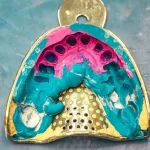




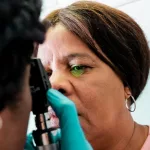



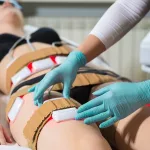
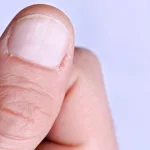
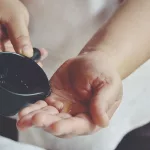
Leave a Reply
You must be logged in to post a comment.